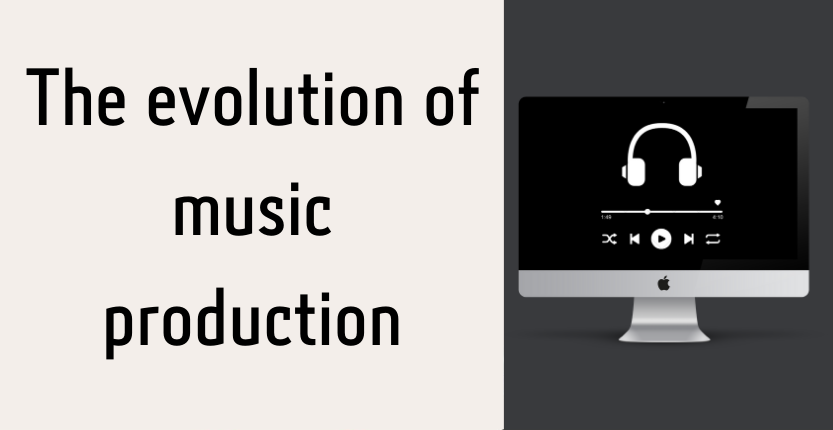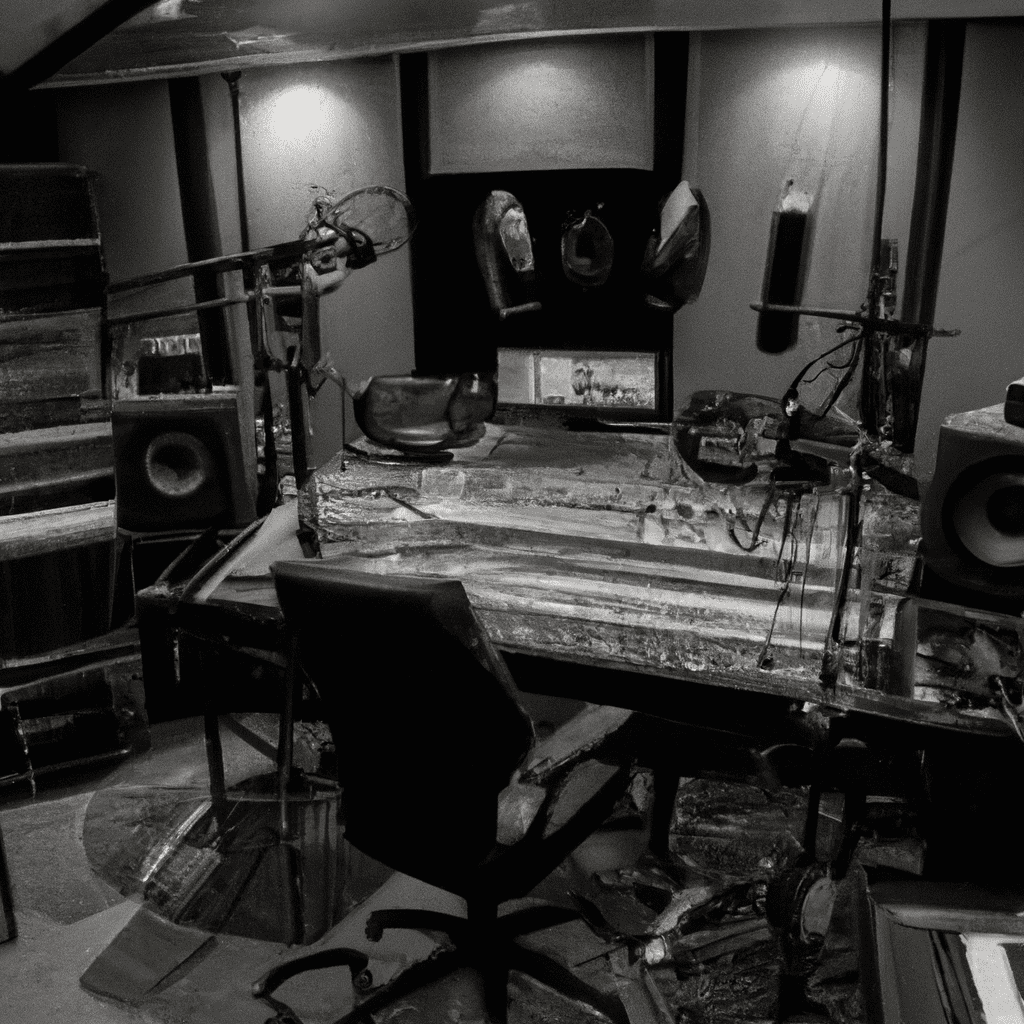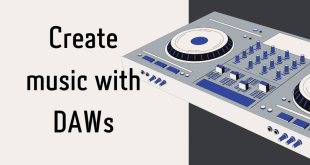Music production has come a long way since the days of analog recording and production. With the advent of digital technology, the process of creating and producing music has become more efficient, cost-effective, and accessible than ever before. In this essay, we will explore the evolution of music production from analog to digital, and examine how the advancements in technology have impacted the music industry.

Analog Production:
Analog music production involves the use of physical equipment and materials, such as magnetic tape, mixing consoles, and analog synthesizers, to record and manipulate sound. This method of music production was the standard for many years, from the early days of recorded music until the late 20th century. While analog production has a warm and unique sound quality, it also has some significant drawbacks. For example, it can be time-consuming and expensive to record and mix tracks, and the quality of the sound can degrade over time.
Digital Production:
The introduction of digital technology revolutionized the music industry, making music production faster, cheaper, and more accessible. With digital recording, sound is captured and stored as a series of numbers, rather than on physical tape, and can be manipulated using software on a computer. Digital recording has several advantages over analog recording, including higher fidelity and greater flexibility in editing and processing. The ability to record and edit music on a computer has made it possible for artists to create music from almost anywhere, without the need for a traditional recording studio.
The Impact on the Music Industry:
The evolution of music production has had a profound impact on the music industry. With digital technology, it has become easier for independent artists to produce and distribute their music without the need for a record label or expensive studio equipment. This has led to a proliferation of new and diverse music styles and genres, as artists are no longer limited by the financial constraints of traditional recording. The rise of digital distribution platforms such as iTunes, Spotify, and YouTube has also made it easier for artists to reach audiences around the world, without the need for a physical release.
The Impact on the Listening Experience:
The evolution of music production has also impacted the way people listen to music. Digital technology has made it possible to listen to music on portable devices such as smartphones and tablets, and has given rise to new listening habits and preferences. Streaming services have made it easier for listeners to discover new music and create custom playlists, while digital signal processing has made it possible to enhance the listening experience with advanced features such as noise reduction and surround sound.
The Role of the Producer:
Throughout the evolution of music production, the role of the producer has remained crucial. A producer’s job is to oversee the entire creative process, from songwriting to recording to mixing and mastering. They are responsible for bringing out the best in the artist and helping them achieve their vision.
In addition to technical skills, a producer must also possess strong interpersonal and communication skills. They must be able to collaborate effectively with artists, engineers, and other professionals in order to create a cohesive final product.

The Future of Music Production:
As technology continues to advance, the future of music production is likely to see even more changes and innovations. Some experts predict that virtual reality and artificial intelligence will play a more significant role in the music production process, allowing artists to create immersive and interactive musical experiences. The rise of blockchain technology is also expected to have an impact on the music industry, by providing a more transparent and secure way to distribute and monetize music.
In conclusion, the evolution of music production from analog to digital has had a profound impact on the music industry and the listening experience. While analog production has its unique sound quality, the benefits of digital technology, such as greater flexibility and accessibility, have transformed the way music is produced and distributed. As technology continues to advance, it is likely that the future of music production will see even more changes and innovations, leading to new and exciting musical experiences for listeners around the world.
